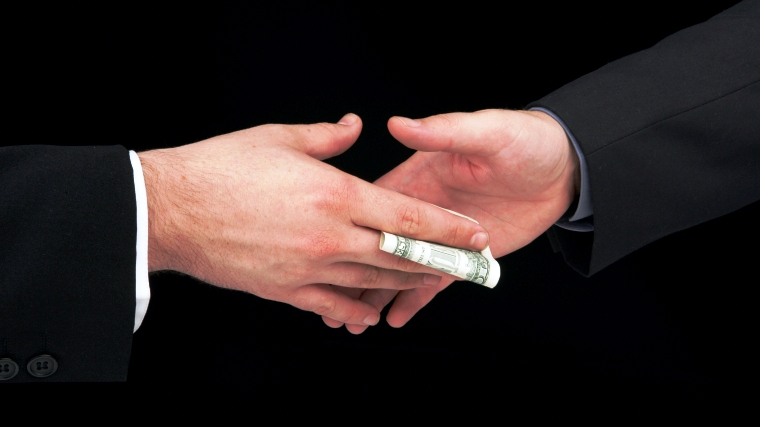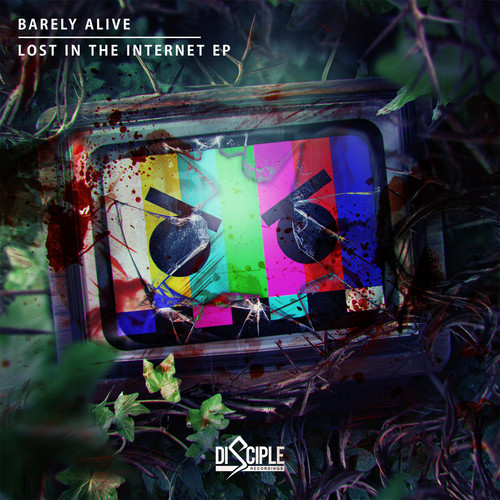Editor’s Note: The topic of payola is a messy one to say the least. This article is meant to explore the concept of payola, how far it extends, and its relevance in the modern day.
Payola is widely defined as “the practice of bribing someone to use their influence or position to promote a particular product or interest.” Despite its popularized use to describe unethical practices in the music industry, the term actually has a very blanket meaning. Payola is typically used to refer to an artist, record label, or managerial staff buying broadcast/play time for their “product/interest,” which is music.
In the broadest sense of the definition, payola could encapsulate almost any form of advertising; Party A pays Party B to promote Party A’s stuff. However this is where the argument begins. Payola is illegal in the United States. Under Title 47 of The United States Code, payola is illegal and enforcement of payola violations falls to the Federal Communications Commission or FCC. Despite the existence of the FCC, payola has been a rampant practice that has evolved into an industry wide trend, with almost total disregard to genre. This practice has been nearly synonymous with and applied to radio broadcast.
Massive figures such as Dick Clark and Sony BMG have been no exception to this practice, facing allegations of accepting bribery in exchange for guaranteeing spots on radio playlists. If you’re curious you can read a list of FCC investigations and their findings on allegations of payola here.
So, without further ado, let’s get into the nitty-gritty.
How is payola affecting EDM and what can be done about it?
First off, payola is rampant within the scene. It is more or less the rule and not the exception to the way content is spotlighted. There are entire companies whose business model rests on charging artists for a boost in exposure. This article is not about naming those who engage in this practice, but be rest assured some of the most visible networks and entities around are doing it.
How does this work? Simple. An artist, manager, or record label will pay an agreed sum to an established entity who can guarantee a higher than organic level of views or listens (whether or not these numbers are coming from actual listeners – we will come back to this in a moment). An artist can then boast that their track received thousands, if not hundreds of thousands of plays, likes, and re-posts. In an ideal world this translates to boosted exposure and legitimacy that can often overshadow the actual sales figures of a song.
This model has also been applied to the EDM blogosphere as well, with money exchanging hands in turn for a post. However, this practice is illegal under advertising laws. The Federal Trade Commission has set forth rather clear laws on the need for the media to clearly disclose their paid pieces as advertisements rather than organic pieces. I won’t spend much time talking about this as the law is quite simple – if payment is received for a review it is advertisement and must be disclosed as such. However, this law is often flagrantly violated, and in such a widespread manner that taming the problem would require a resource intensive, monumental, endeavor that is arguably all but possible.
The argument is simple; payola based companies are incredibly harmful to the mediums, whether that be Soundcloud, YouTube, or media outlets, that they infect for several reasons. The use of bots, or fake profiles that are directed en masse to generate a large amount of plays devalue networks such as Soundcloud. These automated ghosts serve no other purpose than to follow profiles, generate plays, and post generic comments such as “sick, OH MY GOD,” “i pooped at the drop,” and “masterful.” The existence of large amounts of ghost accounts detracts from the original purpose of any musical platform. The emphasis becomes less about sharing and exposing creative work and more about falsified numbers to boost those who are willing to pay for artificial exposure. Additionally, these fake profiles will almost never generate revenue for the actual platform itself. Ghost accounts will almost never upgrade to the premium model and instead will be used to generate profit for the payols. As far as the blogosphere is concerned, payola has damaged the credibility of the entire system. The role of blogs has become blurred between a platform to expose new music and upcoming talent based on talent, and that of a platform designed to give exposure to those willing to pay for it.
So, how do we change EDM’s money problem?
First of all, any effective change will come directly from the scene itself. It’s painfully obvious to see which entities in the EDM world who have literally sold out. Whether you be an artist or a fan, this visibility gives you a choice.
As an artist the choice is simple. Don’t do it. It’s easy to buy your plays, but ultimately you damage your credibility. As a musical curator if I see your work featured on PAYOLA.COM, it will be incredibly unlikely that I will take your work seriously. On the flip-side if you can’t get your work featured without having to pay for it, chances are your work isn’t that good. Unless stroking your ego is medically necessary, the added play counts, the fake fans, and the write-up actually do very little for you in the long run. If the people who “support” your music are charging you to expose it, they aren’t really supporting you, you are supporting them (unless they are your publicist, then that’s okay).
As an EDM fan you have perhaps the biggest choice of all. You choose where you get your media from, you drive the impressions, plays, and sales, that supports the whole system. I’m guessing you’re not reading a blog or viewing a channel to get mediocre music, so why support the people who accept bribes to support mediocrity? There are so many amazing outlets that share our mission, to curate amazing music, simply for the love of it. Simply put, choose to support the people who legitimately support the music.
Entities like Soundcloud need to tighten the terms of use to close loopholes that allow companies to disguise payola as PR. Tighter user verification including SMS linked verification could drastically reduce the number of bots and fake accounts, which in turn would put pressure on the companies that rely on their use. Hell, if Soundcloud lets you report a copyright violation, why not give users the choice to report abuse as well?
I’ll end things here with a message to the payolas: What you’re doing is not just wrong, it is illegal. It doesn’t matter how you dress it up or what loopholes you may be using, taking money for exposure is disgusting.













Paying Beatport to put songs in their TOP 10.
So this goes for buying your own tracks to put it on the beatport top 10?
Haha I knew this was a Brett post as soon as I saw the title. Thank you for putting this out there.
Haha I knew this was a Brett post as soon as I saw the title. Thank you for putting this out there.
And this is How Paris Hilton Becomes Top 5 DJ’s Globally??? What A Disgrace
Good article, but I think some more research is needed. Payola is specific to Radio Disc Jockeys, not private entities such as Soundcloud, iTunes, Beatport, etc. Most likely (speculation) this is because the FCC oversees radio stations and there is no governing body that oversees private businesses in the same way.
Here’s your sauce for reference: http://en.wikipedia.org/wiki/Payola